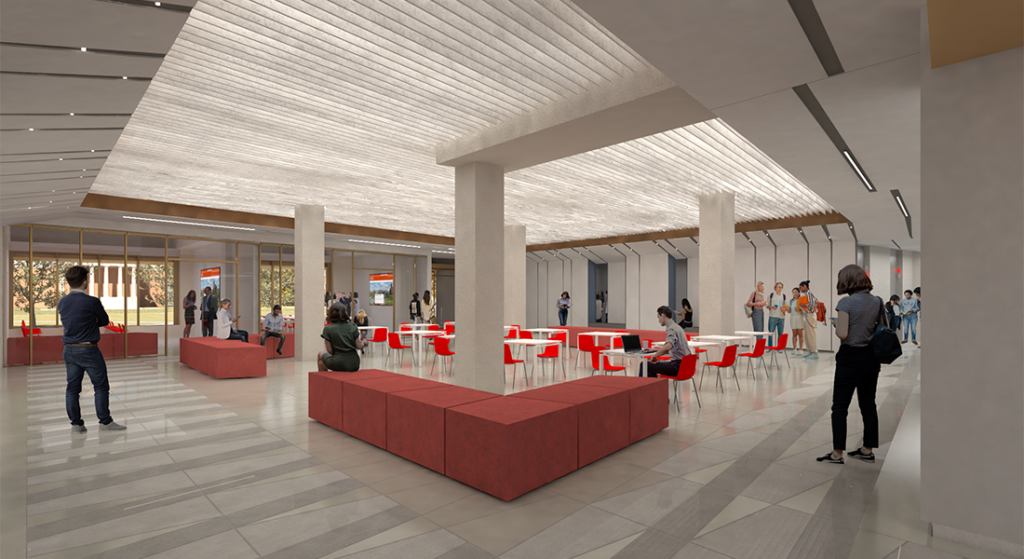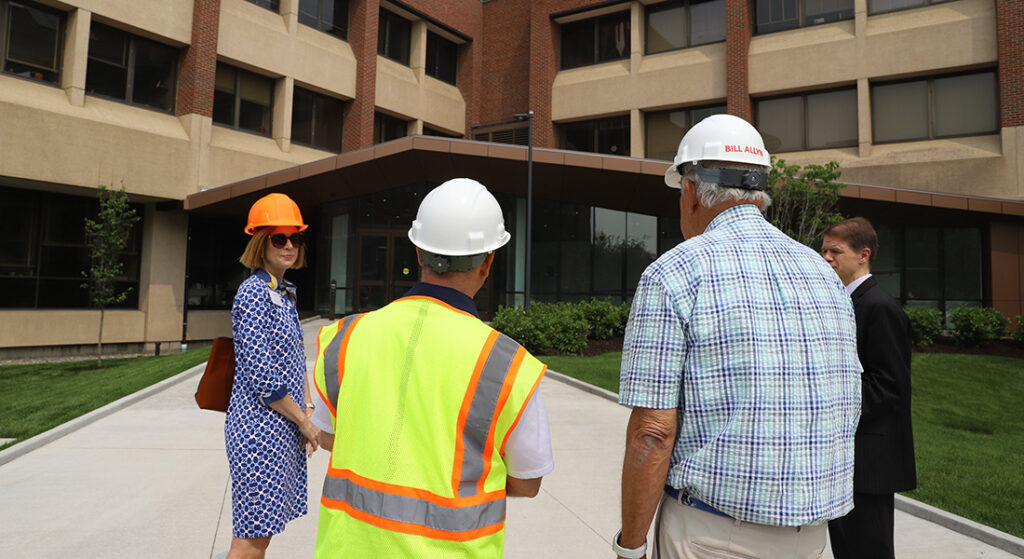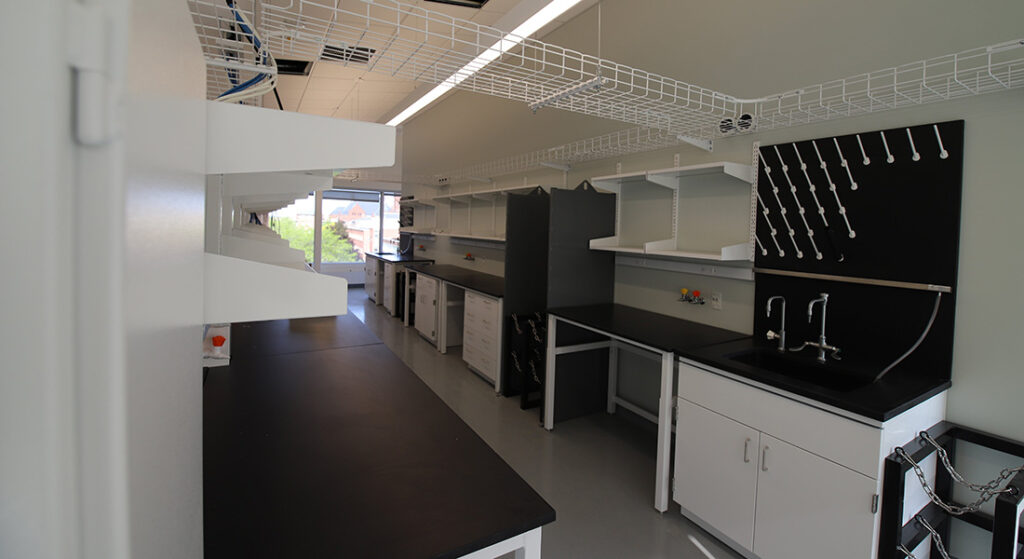
Machinery and power tools echo throughout Link Hall as construction workers bustle about the building. Since the spring of 2022, Link Hall has been undergoing renovations, and big changes are on the horizon. We sat down with Bruce Molino, the Director of Space Management and Strategic Initiatives, who shared some exciting developments students, faculty and staff can expect to see in the coming years, and he believes these renovations will transform Link Hall into a welcoming space that fosters collaboration.
“Link Hall was built at a different time and served a different purpose,” Molino said. “50 years on, it’s time for something new.”

The University has been experiencing new growth, hiring more researchers and elevating its research profile but research facilities haven’t kept pace with the college’s expansion. To attract new faculty and students, the College of Engineering and Computer Science (ECS) aims to provide adequate spaces for researchers to work. The college also seeks to create new spaces for student engagement and upgrade the building’s accessibility.

One of the biggest changes students, faculty, and staff can expect to see is the first floor of the building, the Allyn Innovation Center, which will serve as a meeting and gathering space. This newly renovated hub will include lecture halls, classrooms, meeting rooms, spaces for Teaching Assistants, STEM labs, student success suites, and a brand-new entryway. Molino expressed excitement about how these spaces will shape interactions between everyone in the college.
“I think the Allyn Innovation Center will be a big deal,” he said. “It will completely change the energy of the building and how people meet and interact. I’m most excited to see that get developed.”

Molino is also looking forward to the development of new chemical engineering labs on the second and third floors of Link Hall. They’ll be designed as shared research spaces rather than individual faculty areas, promoting a collaborative culture within the college.

However, Link Hall isn’t the only building undergoing renovations. The first floor of the Center of Science and Technology (CST) is also being renovated to include new wet labs that will be used for chemical or gas-based research and construction on this floor has already been completed. The fourth floor of the building is being renovated to include dry labs, which don’t involve chemical or gas-based research, and the CST basement will be a combination of both wet and dry labs.
Though construction has been smooth, there have been some challenges. Limited space has required all renovations to take place while the building is occupied, leading Molino to rearrange certain spaces until the completion of renovations.

The ongoing construction has caused interruptions and noise which have become increasingly common for faculty, staff, and students working during the past two summers. And Molino warns that as the construction nears completion, these disruptions may become more frequent.
“It’s going to get busy here for the next couple of years for construction,” Molino says. “It’s been a challenge to do this type of project with no swing space to work with. It’s also been difficult on research faculty, who must move their equipment and deactivate the lab impacting ongoing research.”
However, Molino believes the effort will be worthwhile, noting that facilities have a strong impression on recruiting potential students and faculty and these changes will have a significant impact on the future of the college.
“This building will feel very different in a few years,” he said. “It’s exciting and we can’t wait for everyone to see how it looks.”
